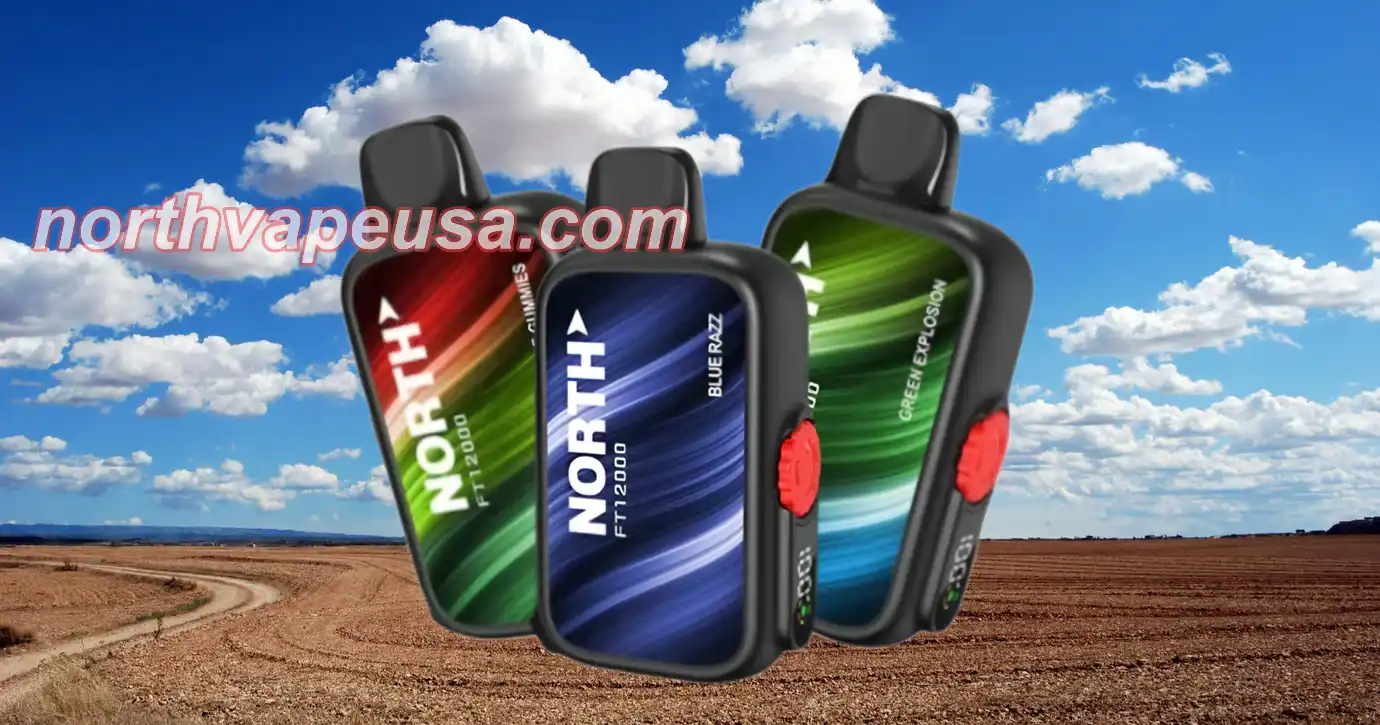Vietnam's Upcoming Vape Ban: What It Means for the Industry and How Businesses Can Adapt
Vietnam's Upcoming Vape Ban: What It Means for the Industry and How Businesses Can Adapt
The rise of vaping has undoubtedly shifted the landscape of nicotine consumption across the globe. As vape products gain popularity, governments are starting to take a closer look at the long-term health impacts and social consequences. Vietnam, a country that has seen a surge in vape use, has taken a bold step by deciding to completely ban the production, sale, and import of electronic cigarettes (vapes) and heated tobacco products, effective January 1, 2025.
In this article, we’ll break down the reasons behind Vietnam’s vape ban, what the policy entails, how other countries are handling similar issues, and the steps businesses can take to stay compliant with new regulations while still finding ways to thrive. It’s going to be a rollercoaster of information—so hang tight and keep reading!
What is a Vape?
Before diving into Vietnam’s vape ban, let’s make sure we’re all on the same page. A vape (or e-cigarette) is a device designed to vaporize liquid, which typically contains nicotine, flavorings, and other chemicals. These devices offer a way for users to inhale vapor rather than smoke, and they have quickly become a popular alternative to traditional cigarettes.
Vapes are available in a variety of forms, from small, sleek pens to larger, more complex mods. The liquid in these devices, known as e-liquid or vape juice, usually consists of nicotine, propylene glycol (PG), vegetable glycerin (VG), and a variety of flavors. While vaping is often marketed as a safer alternative to smoking due to the absence of many harmful chemicals found in combustible cigarettes, health experts are still evaluating the long-term effects of vaping.
The appeal of vaping has skyrocketed, especially among younger generations, thanks to the wide array of flavors available and the sleek, modern design of the devices. But is vaping really a safer alternative? That’s where the controversy begins.
Why Did Vietnam Decide to Ban Vaping?
- Health Risks: The Dark Side of Vaping
There’s no denying that vaping poses certain health risks. Research has shown that while vaping may not be as harmful as smoking traditional cigarettes, it still carries significant dangers. Some of the most concerning health risks include: - Lung Damage: Vaping has been linked to respiratory issues, including acute lung injuries, and some studies have even suggested it could contribute to chronic diseases like asthma or chronic obstructive pulmonary disease (COPD).
- Heart Disease: The nicotine in vape juice can raise blood pressure and increase heart rate, putting users at higher risk for heart disease.
- Addiction: Nicotine is highly addictive, and young people are particularly susceptible to developing a dependency, leading to lifelong habits.
- Unknown Chemicals: Many vapes contain chemicals that have not been adequately researched. This means there are potential long-term health effects that we simply don’t yet know about.
While vapes are often promoted as a "safer" alternative to smoking, there is growing evidence that they may not be as harmless as initially thought. Vietnam, like many other countries, has made the decision to take a more cautious approach by banning vaping products altogether in an effort to reduce the long-term health risks associated with these products. Have questions about vapes? north vape near me answers all your questions!
- The Youth Appeal: Vaping Among Teens
One of the main reasons Vietnam has taken action against vaping is the increasing popularity of e-cigarettes among teens. The availability of fruity and sweet vape flavors like “mango,” “blueberry,” and “watermelon,” coupled with stylish and discreet devices, has made vaping particularly appealing to younger audiences. Social media influencers and peer pressure have also played a role in promoting vaping, making it seem "cool" and trendy.

Vietnam's government is especially concerned about the rise in vaping among teenagers, as this group is particularly vulnerable to nicotine addiction. The fact that vape products are widely marketed as a safer alternative to smoking may be misleading, further encouraging young people to start using them.
- Lack of Regulation
The vape industry has grown at an exponential rate, but it has been difficult for governments to regulate. Many products don’t meet quality standards, and the ingredients used in vape liquids often go unregulated. In some cases, vaping products have been found to contain harmful chemicals that could pose significant health risks. By banning vapes entirely, Vietnam aims to protect the public from potentially dangerous, unregulated products.
What Does Vietnam’s Vape Ban Entail?
- Legal Framework
The Vietnamese government has laid the foundation for the vape ban with Resolution No. 173/2024/QH15, passed by the National Assembly during its 15th Congress, 8th session. The resolution prohibits the production, sale, import, transport, and use of vapes and heated tobacco products starting January 1, 2025. - Penalties for Violations
To enforce the ban, the Vietnamese government has introduced strict penalties for individuals and businesses who violate the new laws: - Individuals caught using vapes may face administrative fines.
- Businesses involved in manufacturing, selling, or distributing vapes could face hefty fines and even risk having their business licenses revoked.
- Illegal Importers and Transporters of vapes will be subject to criminal prosecution.
Vietnam’s government is serious about ensuring that the vape ban is upheld and that companies and individuals comply with the law.
Global Trends: What Other Countries Are Doing
Vietnam is not alone in its efforts to regulate or ban vaping. Around the world, governments are grappling with how to manage the increasing popularity of vapes. Here’s a snapshot of what’s happening in other countries:
- United States: The U.S. has implemented various regulations to curb vaping, including a ban on flavored vape products (with the exception of menthol) and age restrictions to prevent youth access.
- India: India has gone a step further and banned the production, sale, and import of all vape products, citing health concerns and the rise of youth usage.
- China: In China, vaping is regulated as part of the tobacco control laws, and there are stringent rules about the sale of e-cigarettes and related products.
- Thailand: Thailand has one of the strictest vape policies in the world, where possession and use of vapes can lead to hefty fines and even jail time.
Vietnam can look to these countries for guidance on how to manage the vape industry. By implementing public education campaigns, offering support for those trying to quit smoking, and cracking down on illegal trade, Vietnam can take meaningful steps to reduce the health risks associated with vaping.
How Can Businesses Adapt and Legally Register?
For businesses in the vaping industry, Vietnam’s vape ban presents a serious challenge. However, there are several strategies that companies can use to adapt to the changing regulatory landscape:
- Transition to Non-Tobacco Health Products
Businesses in the vape industry may want to pivot towards non-tobacco health products. Options like air purifiers, health-focused electronic devices, or wellness products could allow companies to stay in the broader health and tech industries while complying with the ban on vaping products. - Diversify into Other Legal Industries
Companies can look to expand into other industries that are not impacted by the ban. For example, moving into sectors like food, supplements, or wellness could help businesses maintain revenue streams while operating within the law. - Explore International Markets
If companies still wish to remain involved in the vape industry, expanding into international markets where vaping is not yet banned may be a viable option. This could open new business opportunities in countries with looser regulations.
How to Legally Register a Business
For businesses looking to register legally in Vietnam or adapt to new markets, it's crucial to ensure compliance with local laws. Services like Shanhai Map offer business registration assistance, helping companies navigate legal requirements and regulations. Key services include:
- Business Registration Consulting: Helping businesses choose the right legal structure and industry category.
- Legal Compliance: Ensuring businesses meet all local regulations and stay within legal boundaries.
- Tax Planning: Assisting companies in optimizing their tax structures and reducing costs.
- Cross-Border Expansion: Helping businesses enter new markets that align with their products.
By using these services, companies can ensure they meet local requirements and stay legally compliant while exploring new business av enues.
enues.
Conclusion: The Future of Vaping in Vietnam
Vietnam’s decision to ban vapes in 2025 is a bold and decisive step in protecting public health, especially the health of young people. While vaping has been touted as a safer alternative to smoking, there are still significant concerns about its long-term effects, particularly on teens who may be more susceptible to addiction. With this ban, Vietnam joins a growing list of countries that are cracking down on vaping products to curb health risks.
For businesses, this represents a turning point. Now is the time to pivot, whether by exploring new markets, transitioning to different product categories, or making use of legal registration services to ensure compliance. Want to explore the world of vapes? North 12000 Disposable Vape keeps you at the forefront!
As the world continues to debate the role of vapes in society, companies will need to stay agile and responsive to the changing landscape in order to succeed in a rapidly evolving market. The key will be flexibility, compliance, and a forward-thinking approach. Let’s see how the future of vaping unfolds in Vietnam and beyond.

